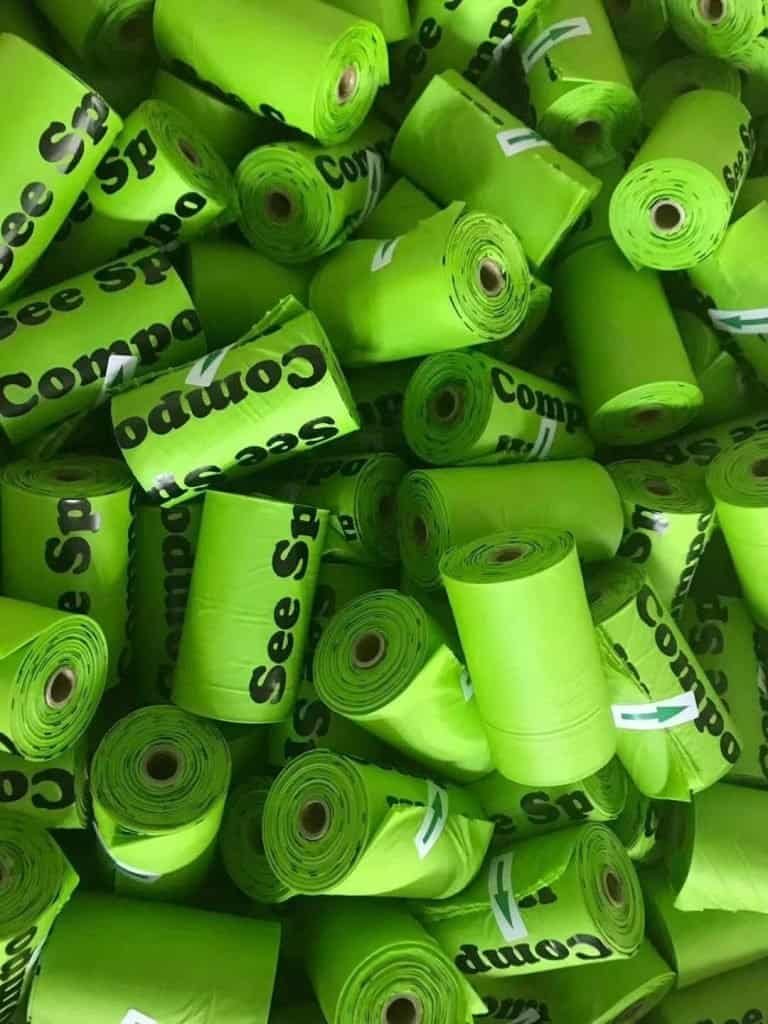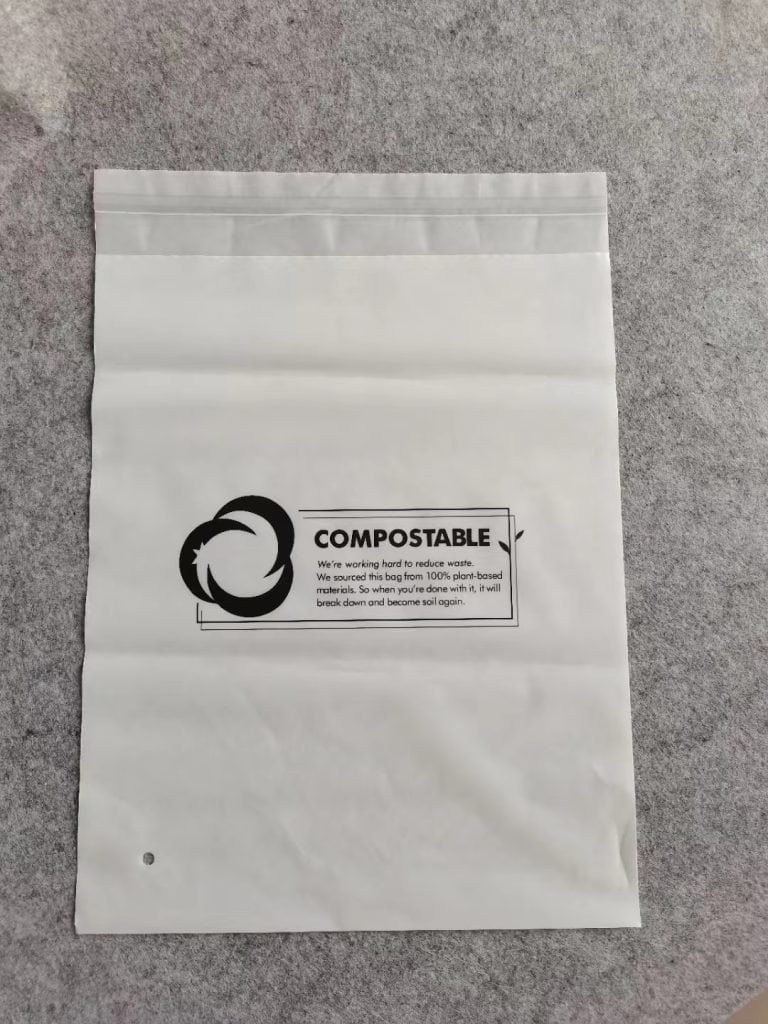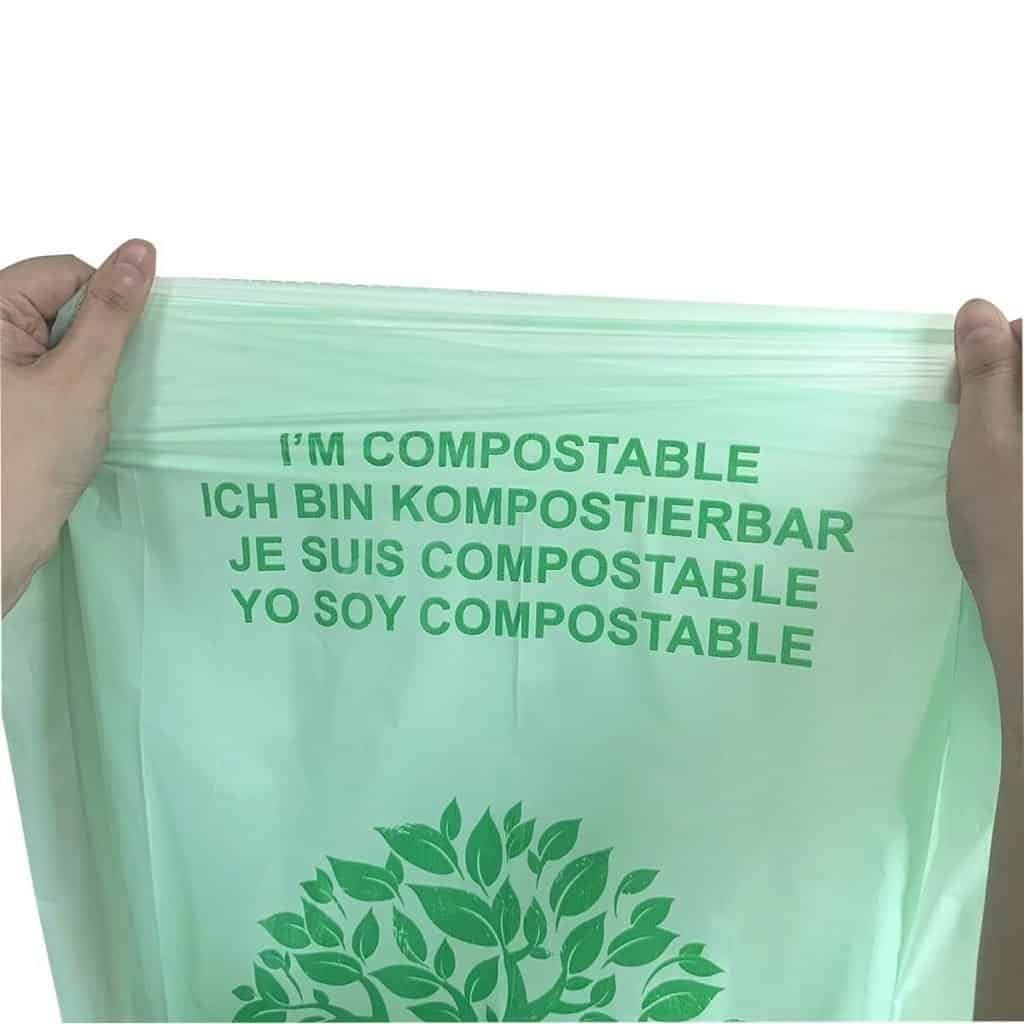Do you find yourself questioning the true impact of biodegradable trash bags? Many of us assume that these bags break down naturally, leaving no trace. However, the reality is often more complex. As the CEO of HMZ Technology, a leader in eco-friendly bioplastic packaging, I understand how challenging it is to separate real sustainable solutions from greenwashing. Let’s explore whether biodegradable trash bags are genuinely as environmentally friendly as they claim to be.
The term “biodegradable” implies that a product will naturally decompose. However, the rate and conditions required for this process can vary greatly. In this post, I’ll discuss what biodegradable means, how it applies to trash bags, and whether these products live up to their environmental promises.
Curious to know the real story behind biodegradable trash bags? Keep reading to make informed choices for the planet.

What Does “Biodegradable” Really Mean?
“Biodegradable” is a term that gets thrown around often, but its definition is crucial. For a product to be considered biodegradable, it must break down into natural elements by microorganisms, water, or light exposure. However, not all biodegradable materials decompose under typical landfill conditions, which is where most trash bags end up. Instead, certain bags may need specific temperatures, moisture levels, or microbial environments to decompose fully.
Unfortunately, without the right conditions, many biodegradable bags simply break down into smaller plastic pieces, adding to microplastic pollution. You can explore more about biodegradability standards here.
To ensure we’re truly making a sustainable choice, it’s essential to verify the claims behind these bags.
How Are Biodegradable Trash Bags Different from Regular Plastic Bags?
Unlike traditional plastic bags, biodegradable options are designed to decompose over time. These bags are often made from plant-based materials like PLA (polylactic acid), which we use at HMZ to produce compostable packaging. PLA, for example, is derived from corn starch and is more sustainable than petroleum-based plastics. However, it doesn’t necessarily mean these bags will disappear in a regular landfill.
Most biodegradable trash bags require industrial composting facilities to fully break down, which raises the question: if they end up in a landfill, are they still environmentally friendly? Read more on PLA and its decomposition requirements.
For truly eco-conscious consumers, it’s important to check if the bags are labeled as “home compostable” or “industrial compostable.”

Do Biodegradable Bags Actually Decompose in Landfills?
Here’s a hard truth: landfills are not designed for organic decomposition. Most landfills are sealed off, limiting exposure to the air, light, and microbes necessary for breaking down biodegradable materials. This means that even biodegradable trash bags may take decades to decompose if buried in a landfill. Without access to oxygen, biodegradable bags degrade much slower, often with environmental repercussions.
Some studies show that biodegradable materials in landfills may still contribute to methane emissions, a potent greenhouse gas. You can find more information about biodegradable bags in landfill conditions.
For businesses and individuals looking to reduce landfill waste, this is a crucial factor to consider.
What Are Compostable Trash Bags?
Compostable trash bags differ from biodegradable ones in a key way—they’re designed to break down entirely into non-toxic components within a specific composting environment. Compostable bags are certified to decompose without leaving toxic residues, making them an eco-friendly alternative if properly disposed of in composting facilities.
At HMZ Technology, we offer compostable PLA-based products, which, under industrial composting conditions, will decompose into water, carbon dioxide, and biomass. However, it’s important to note that compostable bags also require specific conditions to fully break down. Learn more about compostable certification standards.
This brings us to a practical consideration: compostable bags are beneficial, but only if they’re disposed of in composting facilities. If not, they may end up sitting in landfills for years, just like other biodegradable bags.
Are Biodegradable Bags the Best Solution for Consumers?
For consumers interested in sustainable waste management, understanding how and where these bags break down is key. Biodegradable bags can be effective in areas with access to industrial composting, but if your local waste facilities don’t support compostable disposal, these bags may not be the most impactful choice.
Instead, reusable bags or bags made from truly compostable materials may provide a more sustainable solution for everyday waste disposal. To make informed decisions, always check the product certifications and local waste management options.
You can explore more tips on choosing sustainable trash bags.

How Can You Make the Most of Biodegradable Bags?
If you decide to use biodegradable bags, try to maximize their environmental benefits by:
- Researching local composting facilities: Confirm if your community offers industrial composting services where these bags can fully decompose.
- Avoiding landfill disposal: If composting is unavailable, use bags that decompose naturally in your environment, like certified home compostable bags.
- Staying informed: As technologies in eco-packaging evolve, keep up-to-date on the latest options in truly sustainable trash solutions.
At HMZ, we believe that with knowledge and responsible choices, we can collectively reduce our waste impact on the planet.
Conclusion
Biodegradable trash bags may sound like a perfect solution, but the reality is more complex. While they offer potential environmental benefits, they require specific conditions to break down effectively. At HMZ Technology, we prioritize transparency in our eco-friendly products, making it easier for you to choose packaging that aligns with both your values and practical needs.
